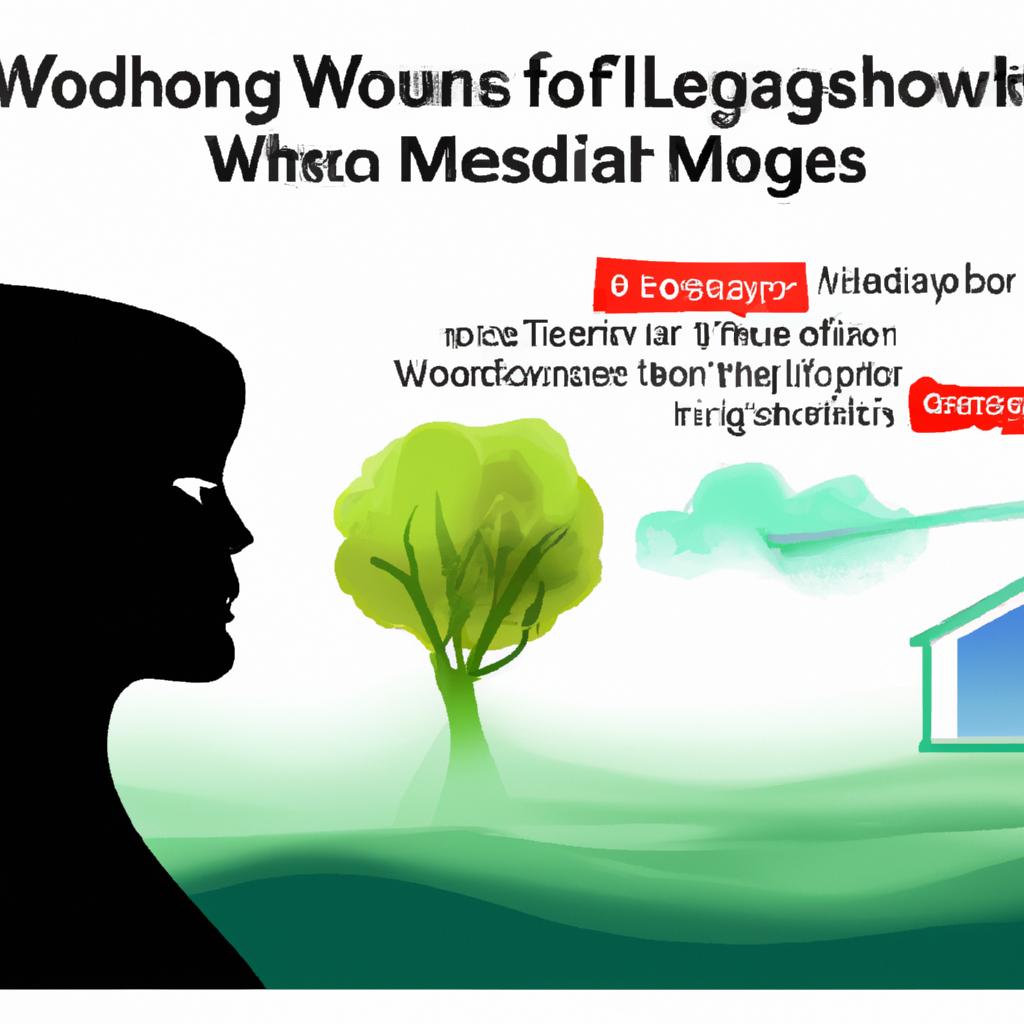In the intricate landscape of grief and loss, widows often find themselves navigating through a unique phenomenon known as “widow’s fog”. This perplexing state of mind, characterized by a sense of disorientation and emotional upheaval, can significantly impact decision-making and cognitive function during a time of vulnerability. As experienced attorneys at Morgan Legal Group, nestled in the bustling metropolis of New York City, we understand the complexities of estate planning, probate, elder law, wills, and trusts. In this article, we delve into the nuances of widow’s fog, shedding light on its effects and offering insightful guidance for those grappling with its challenges.
Recognizing the Signs of Widow’s Fog: Understanding the Mental and Emotional Impact
Widow’s fog is a term used to describe the mental and emotional impact that can affect individuals who have recently lost their spouse. This phenomenon can manifest in various ways, making it crucial for loved ones and professionals to recognize the signs and offer support. Understanding the complexities of widow’s fog is essential for helping those who are navigating through the grieving process.
Some common signs of widow’s fog include:
- Forgetfulness and difficulty concentrating
- Feelings of numbness and disorientation
- Loss of interest in activities once enjoyed
Additionally, those experiencing widow’s fog may struggle with decision-making and experience intense emotions such as sadness, anger, and guilt. By acknowledging these signs and providing a supportive environment, individuals can begin to navigate through the challenges of widowhood with care and understanding.

Navigating Legal and Financial Challenges: Strategies for Widows Coping with Grief
As a widow navigating legal and financial challenges while coping with grief, it’s common to experience what is often referred to as “widow’s fog.” This fog can make decision-making feel overwhelming and can cloud your ability to focus on important tasks. However, there are strategies you can implement to help you clear the fog and confidently address the legal and financial matters at hand.
<p>One effective strategy is to seek guidance from a knowledgeable attorney with experience in estate planning and probate. A skilled lawyer can help you understand your rights, navigate complex legal processes, and ensure that your interests are protected. Additionally, consider the following tips to help you cope with the challenges you may be facing:</p>
<ul>
<li><strong>Educate Yourself:</strong> Take the time to learn about the legal and financial aspects of your situation so that you can make informed decisions.</li>
<li><strong>Seek Support:</strong> Lean on trusted family and friends for emotional support, and consider joining a support group for widows to connect with others who are going through similar experiences.</li>
<li><strong>Take Care of Yourself:</strong> Remember to prioritize self-care, including getting enough rest, eating healthy foods, and engaging in activities that bring you joy and comfort.</li>
</ul>
Professional Guidance and Support: How Estate Planning Attorneys Can Help Widows Protect Their Assets
When a woman loses her spouse, she often finds herself in a state of confusion and grief, a fog of emotions that can make it difficult to focus on practical matters. It is during this vulnerable time that estate planning attorneys can offer invaluable guidance and support to help widows protect their assets and secure their future. With the expertise and knowledge of legal professionals, widows can navigate the complex world of estate planning with confidence and peace of mind.
By working closely with estate planning attorneys, widows can ensure that their assets are protected and distributed according to their wishes. From drafting wills and trusts to navigating probate proceedings, estate planning attorneys can provide widows with the tools and resources they need to secure their financial future. With the help of experienced legal professionals, widows can move forward with clarity and certainty, knowing that their assets are protected and their loved ones are provided for.

Creating a Personalized Plan for Healing and Moving Forward After Loss
After experiencing a profound loss, it is completely normal to feel overwhelmed and lost in a “widow’s fog.” This state of mind can make it difficult to navigate the grieving process and move forward with your life. It is important to recognize that healing after a loss is a unique journey for each individual, and creating a personalized plan for healing and moving forward is essential.
One way to begin this process is by seeking support from friends, family, or a therapist who specializes in grief counseling. Talking about your feelings and emotions can help you process your grief and begin to make sense of the loss. Additionally, taking care of yourself physically by eating well, getting enough rest, and engaging in activities you enjoy can help you start to see through the fog and move toward a brighter future.
Q&A
Q: What is “widow’s fog”?
A: ”Widow’s fog” is a term used to describe the mental fog or confusion that can affect someone who has recently lost their spouse.
Q: What are some common symptoms of widow’s fog?
A: Symptoms of widow’s fog may include forgetfulness, difficulty concentrating, feeling emotionally numb, and a sense of disorientation or detachment from reality.
Q: Are there any physical or psychological factors that contribute to widow’s fog?
A: The grief and stress of losing a spouse can have a significant impact on mental clarity and cognitive function, leading to symptoms of widow’s fog.
Q: How long does widow’s fog typically last?
A: The duration of widow’s fog can vary from person to person, but it is often temporary and may improve over time as the individual processes their grief and adjusts to life without their spouse.
Q: What are some strategies for coping with widow’s fog?
A: Engaging in activities that promote mental clarity, such as exercise, meditation, and socializing with loved ones, can help alleviate symptoms of widow’s fog. Seeking support from a therapist or counselor can also be beneficial in navigating the grieving process.
Future Outlook
In conclusion, widow’s fog is a complex and challenging phenomenon that can affect individuals in various ways. It is important to recognize the symptoms and seek support from loved ones or professionals if needed. By understanding and addressing widow’s fog, we can navigate through the grieving process with clarity and resilience. Remember, it’s okay to not be okay, and help is always available for those who need it. Stay strong, and take care of yourself during this difficult time.










